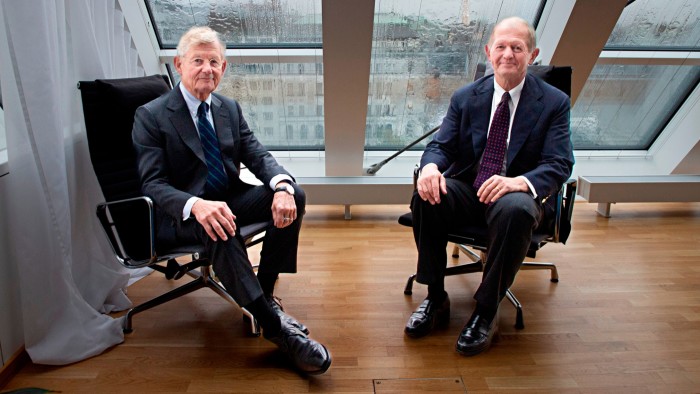Lessons from an unusual corporate succession plan

Unlock the Editor’s Digest for free
Roula Khalaf, Editor of the FT, selects her favourite stories in this weekly newsletter.
An old adage states that family businesses often go from “shirtsleeves to shirtsleeves in three generations”. The buccaneering entrepreneurs of the first generation make the money, the second generation enjoy it, and the third squander it.
It is a tale of woe every successful business person wants to avoid. But as current succession dramas like the current frictions in the family of Rupert Murdoch demonstrate, it can be highly tricky to pull off, especially in the public gaze.
Joachim Schwass, professor emeritus of family business at the Swiss IMD business school, says that poor succession planning is the biggest risk for prominent family companies. A one-time helper of Warren Buffett in finding potential European family companies to buy, Schwass says Sweden’s Wallenberg family showed admirable openness in talking about moving from the fifth to sixth generation. He says this offers others a guide to dealing with a process that is often secretive and littered with pitfalls.
“Succession in family businesses is typically treated as a private, personal, secretive, hidden event — keeping the door open for reversals. Going public on the process and on individuals in the case of such a prominent family is very, very rare,” he adds.
Getting succession right is a matter of the utmost importance for European business, where family groups make up the backbone of economies from Germany and Italy to Spain and Sweden.
The Wallenbergs themselves are an odd beast in family business terms. They do not own any of the businesses themselves, which instead are run by family foundations. The lack of squabbling over ownership is one of the reasons that the three cousins in charge of the Wallenbergs credit it with remaining intact over 168 years – and still controlling groups worth $700bn from Ericsson and ABB to AstraZeneca and SEB.
Cousins Jacob, Marcus and Peter Wallenberg represent the fifth generation. Jacob and Marcus, both 68, told the Financial Times in October that along with the 65-year-old Peter, they had started the process of moving power to the 30 family members in the sixth generation, aged 12 to 45. Many had secured observer roles on foundation or corporate boards, and for the first time in the family’s history, women were likely to play a leadership role.
Several aspects were striking. The Wallenbergs have formally split their activities into three buckets — business, foundations and family — and members of the next generation will be able to choose which one, if any, best suits their interests. The names, occupations and board roles inside the Wallenberg sphere of all 30 relatives were revealed, showing they range from a US start-up executive and French lawyer to an interior designer and credit analyst. Some insiders say the Wallenberg process could have started earlier but the transparency may now spur the transition more quickly.
Schwass says that successions often go wrong due to a lack of understanding of how family businesses change over the generations. Company founders, often entrepreneurs with unbridled power, sometimes think that the model of total control works best and so try to pick one successor to run everything.
Other issues can arise when entrepreneurs place their children in various positions throughout their corporate empires in an apparent competition. “It is no doubt with good intentions, but the outcome eventually will be who is the winner and why, and what happens to the losers?” Schwass asks.
Instead, he argues the second and third generations should be about power sharing between siblings and separating management from ownership while finding a successful common culture. There has to be more to keep family companies together than just money.
That becomes an increasing challenge further down the generations where family shareholders can number in the hundreds. The former chief executive of Heraeus, a German industrial conglomerate, once told me the dentists and teachers in its about 200 family shareholders valued the predictability of its dividend above all else, meaning the company needed to be diversified to keep the payout in good and bad years.
“These family companies mean so much to their countries, but we often know so little about what is really going on in them,” says the Nordic adviser. The Wallenbergs’ move brings more light to this sector. Other corporate families should take note.
#Lessons #unusual #corporate #succession #plan





